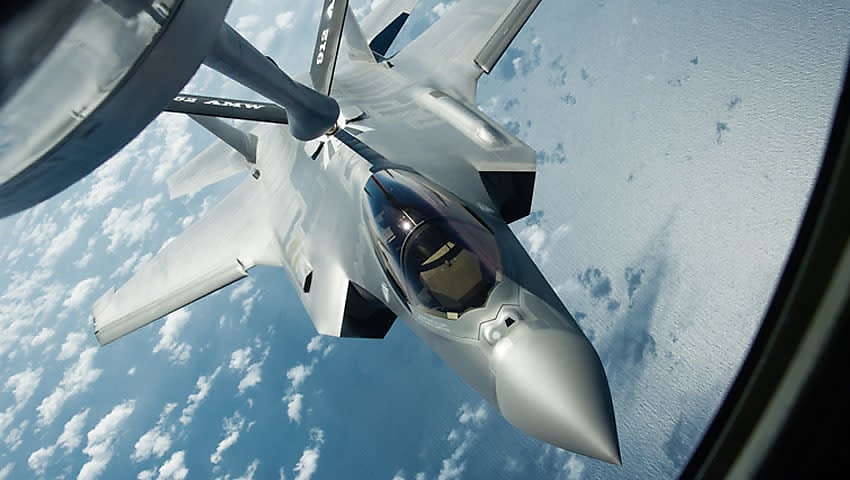Lockheed Martin has approved the use of synthetic aviation turbine fuels in the F-35 Lightning II. The new fuel sources will improve readiness by reducing reliance on the extended supply chain.
The F-35 aircraft has been approved to operate with synthetic aviation turbine fuels (SATF) blended with conventional jet fuel at limits of up to 50 per cent, depending on the raw materials and production pathways used. This approval marks a significant step forward in integrating sustainable energy solutions into advanced defence operations.
Lockheed Martin conducted comprehensive technical and strategic analyses to ensure that SATFs meet the rigorous performance and reliability standards demanded by the F-35’s complex, high-intensity missions. These tests confirm that the aircraft can maintain optimal performance while using these alternative fuels, supporting the strict requirements for safety and operational effectiveness.
Chauncey McIntosh, vice president and general manager of the F-35 program at Lockheed Martin, celebrated this milestone, saying, “Adding new fuel sources helps make this happen by diversifying the supply chain while maintaining operational excellence. As the cornerstone of the joint fleet, the F-35 will continue to lead the US and allied air dominance mission for decades to come.”
The integration of SATFs aligns with the US Department of Defense’s goals to diversify energy sources and enhance energy resilience. By enabling the use of sustainable and renewable fuel options, SATFs provide operational flexibility and reduce reliance on traditional fossil fuels.
SATFs are derived from a range of raw materials. These include fossil-based sources such as coal and natural gas, as well as renewable and sustainable sources like waste oils, agricultural residues and other non-fossil-based materials. This diversity of raw materials contributes to energy substitution efforts while addressing environmental sustainability.
“Lockheed Martin is committed to ensuring the F-35 is always ready for any customer mission,” McIntosh said.
With this approval, the F-35 program demonstrates a commitment to innovative energy solutions that support both environmental goals and the demanding requirements of modern military aviation.



